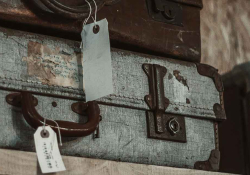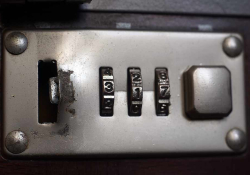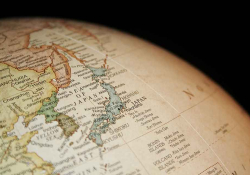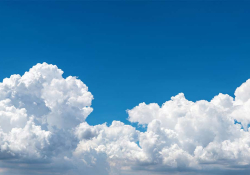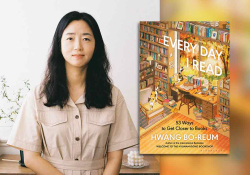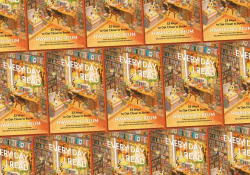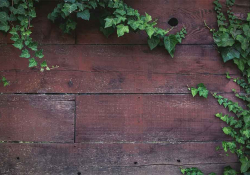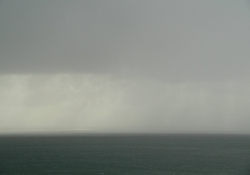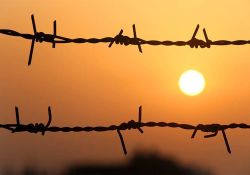Tuolumne
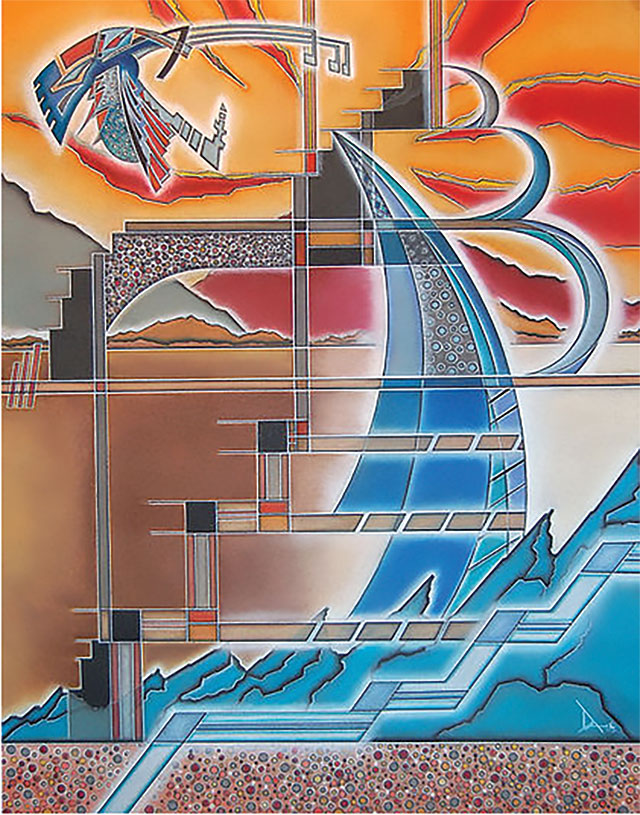
“Tuolumne River. My father took me there when I was a baby to show me ‘the Indian river,’ and again when I was released from prison. We went to see the salmon.” – Al Miranda Sr. (November 19, 1927 – June 28, 2009)
My father walked out of San Quentin after eight years and somehow ended up at the Tuolumne River. My father’s forty-four-year-old body was hardened, callused, scarred, and tattooed with eight years of fighting to breathe, to stay unbroken, or at least alive. He woke up nights in a cold sweat, fists coiled, pumped with adrenaline. Far into old age, he told me, he lived in fear that his release was a mistake, and guards would show up to take him away, lock him back up.
But how did he get from San Quentin to the Tuolumne River, and why? Well, he didn’t mean to make that trip. As to why . . .
My father went to see his own father; they hadn’t seen each other in a long time. Maybe my dad just wanted to catch up. More likely, he wanted to borrow some money, maybe bum a place to crash until he could find work. My father wasn’t afraid of hard work, and right about then, he could use some structure in his day. With all the carpentry skills he’d learned “at college,” he’d find work quick.
But these two men, my father Al and grandfather Tom, could not communicate. Oh, they both spoke English. But they also both spoke the language of pain, and for that very reason, could not speak to each other.
I don’t know how my father got to his dad’s house. He had no money. He had no car. He had nothing. Nothing. Still, in his lonely freedom and state of shock, my father found himself there in Stockton. Maybe Tom was out back in his garden, lifting his prize cantaloupes up on boards so the gophers wouldn’t gouge them out from beneath, or maybe he was feeding treats to one of his dear dogs. I’m sure it was hot, the California sun merciless on skin that had not seen much of that particular light for over three thousand days.
Maybe they had coffee. Or a cold beer together. My grandfather was no angel, but he’d never been in prison. I suspect he was shamed by my father’s incarceration, but then my father always was the black sheep of the three surviving boys; he would have been used to that. And my father wasn’t the first family member incarcerated at San Quentin; his mother’s brother, Cesar Robles, had done time there, convicted of manslaughter. He’d killed his wife for her unfaithfulness. My father said Cesar had beheaded her; I’m not sure that part of the story is true. Still, forgiveness was not a family trait. Al and Tom would not have enjoyed this reunion.
And yet at some point Tom said, “Get in the car.”
And because he had nowhere to go and no one to go with, my father did. He sat in the passenger’s seat of my grandfather’s old Ford sedan, waited to see what would happen next. He expected Tom to say something about the prison gang tattoos, the X between my father’s eyebrows, the dark blue marks in the crease between thumb and forefinger. Tom said nothing. Just backed out of his driveway, pulled onto the side street, and made his way to a freeway.
They were heading toward the mountains.
When they arrived, Tom steered the car down toward a cluster of tall trees, shaggy pines, and oaks.
The two men stepped out of the car, felt the heat of the engine hanging over the hood, and then the embrace of cool river breath and liquid calls of birdsong. And in the river, the long ancient bodies of salmon returning home, silver and red flashing in the green water, spotted tails pushing hard against the current. It must have been fall; that’s when Chinook and steelhead make their return up the Tuolumne.
This is what my father told me, years later.
“The Indians came to this spot,” my grandfather said. He might have sounded casual, offhand, or deadly serious.
My father was silent. I do know that. He was stunned by the beauty of that place, the taste of wet air on his tongue, same air of his first breath when he emerged from his mother’s womb nearly forty-four years before. Stunned by the song of water, the explosive greens of leaves and pine needles, the scent of life.
And now his father was talking about Indians.
Tom Miranda spent a lifetime being silent about what was written all over his body, his former wife’s body, and the bodies of their four boys. Family stories say Tom used to go to Indian dances, make his own regalia, but he never shared any of this with his boys. Indian was a dirty secret.
“You know, you were born near here, up at the Rancheria. I brought you here when you were just a baby. The river, she was a lot faster in those days, before they dammed her; lotta salmon then. Your mother came up here cuz I was away logging, and she had family up here. Her mother died around then, and her grandma was real sick. She needed family to help her with Tommy and Richard. They was just little ones.”
My father knew this story. It was his personal Creation Story, the one that marked him different from everyone else. The sudden November snowstorm; the doctor sent for but stuck on the road; the Indian woman—a cousin? an auntie?—who midwifed Keta. The doctor who finally arrived, exhausted, agreed the hollering dark brown baby was a healthy boy, stepped outside to sign the birth certificate and collapsed, didn’t get back up. That baby, never registered with the US government, didn’t officially exist until it was time to go to war, and he needed proof he’d been born before he could sign up to die. My father told me that he’d had to go back up to Tuolumne and find that woman who’d delivered him, get her to sign a document.
My father was a little proud of this story. His outlaw birth.
“The Indians used to come here. Catch salmon, big ones. This is the Indian river,” Tom went on, looking out over the waters, hands in the pockets of his windbreaker. “You come here when you have questions. You come here when you need . . .” His voice broke off; maybe he didn’t know the word for what he wanted to say. Or maybe he knew the Indian word once but couldn’t remember it, or remembered it but knew his son couldn’t understand the word even if his father did use it.
I wonder. Was the word healing, cleansing, rebirth?
Tom and my father stood there a minute, silent. Then Tom gestured at the river with his chin, an abrupt sharp jerk. “So.” It was a move and a word that said, Well, it’s up to you.
When Tom walked away, he carried the remnants of a world with him: languages, dances, tools, materials, songs. Things he never shared with any of his sons. This was the closest he would ever come to attempting that bridge.
He wouldn’t have touched my father on the shoulder, wouldn’t have patted him on the back. The only touch shared between these two men had been blows. Tom turned, walked down the river bank a ways, left my father to it. When Tom walked away, he carried the remnants of a world with him: languages, dances, tools, materials, songs. Things he never shared with any of his sons. This was the closest he would ever come to attempting that bridge.
This is the Indian river. You come here when you have questions. You come here when you need . . .
My father loved rivers. After he came to live with us in Washington State, that’s where he would go when he wasn’t drinking, when he had a weekend off. A fishing rod, a battered red tackle box, a thermos of black coffee, and a river; and maybe a chance to be happy. The Puyallup River on the Muckleshoot Reservation was one of his favorites, but he frequented the Green River, the Nisqually, the White, too. He took me once or twice but brought my little brother more often; our father ached for a father-son bond that he didn’t quite have the tools to create. If only fatherhood fit in his hands like a good solid hammer and kiln-dried two-by-fours.
I don’t know what my father thought as he stood there by the Tuolumne in the cusp between the 1960s and 1970s; whether he prayed, or asked for forgiveness, or wanted to throw himself into the green waters and let it decide what to do with his body.
His body.
He carried eight years of hell in that body. Did he think about what had been done to his body in San Quentin? Did he think about what that body had done to others? Did he hate his body for its weaknesses, for its needs, for its fears and angers? Could he even still feel his body anymore? Did he know his body as anything but a weapon, or a target? Did he wonder how long he could bear the weight of his body, heavy with the blood of others, stained with indelible loss and grief, curled tight as a fist around a handful of shame? Was he already thinking about where he could get a beer, start numbing the thousand and one blows to the innocence he’d once known that November night on the Tuolumne Rancheria, swaddled tight against his mother’s breast?
Of course, my father had not been innocent in a long time, decades before San Quentin. He knew that.
But my father never told me what he was thinking that day his dad took him back to the river. What I do know is that in 2009, when my father was dying, he gave my brother this command: “Take my ashes back to that river. Scatter me on the Tuolumne.” He told our sister Louise the same thing over the phone, calling her in San Jose from his hospice room in Everett, Washington.
Something in that river called him back. Something in that water told him he needed to return to this Indian river one day, even if only as ash. Something told my father that here was the place he would lay down that battered body one last time, his bits of bone and cinders spread on a current that starts as snow somewhere in the Sierras, gathers its power through canyons and gravity, pours like an artery of creation through meadows near the place of his birth, then crosses the Central Valley with its thirst and fertility, is dammed and held captive, joins the San Joaquin River, is dammed again and finally, weakened in volume but not memory, flows on to the Bay, and the Pacific Ocean, entering that mother of a story.
Something passed between river and man that day. Was it a promise? A plea? Instruction?
One year after our father’s death, my brother fulfilled our father’s last wish, and he did it well.
On that day, I could not be there, though I was on a river, too, on the other side of the country with my two children. What I know about this story comes from my siblings, and from the photographs taken by them. I know that our sister Louise loaded up her van: sisters Pat and Rose, our little brother. It was a long drive from San Jose to the nearest part of the Tuolumne. Large stretches of the river were full of trash, the water low and dirty. It made them all sad, to see a beloved river treated so cruelly. Other places were inaccessible for Louise, who uses a cane. They were losing heart when Louise saw a stranger parked nearby and asked him if he knew any good places in the area, somewhere pretty, and easy to get down to the water. It turned out Harry was the right guy to ask. He said, if you go around this park and make a right, go down a couple of lights, make another right, go down around two miles . . .
Louise told him why they were there, asked if he would be willing to show them the way. He said yes. They jumped in the van to follow. Louise told me, we would have never found this area without him, I think he was sent to guide me. Harry took them to a sweet place where the river ran fast and clear. Our brother walked out and stood, at the edge, smelling. Listening. Feeling. This is the spot, he said.
There, Louise read a prayer she’d composed in Esselen, and they offered abalone and beaded gifts she and Pat had made. Al kicked off his shoes, pulled up the legs of his jeans, skinned off his shirt, waded into the river holding the plastic bag of ashes with both of his big hands. He opened the bag, poured the gray gritty contents out like a cloud onto the surface.
In the pictures Rose took, the plume spreads out, hangs for a moment like a diver streaking downstream. My brother is brown and broad-shouldered as our father. He stands in the water, sure-footed, watching Al Miranda Sr.’s last mark upon this earth.
Our grandfather Tom had brought his son to that river for guidance during a time of great change. In that moment, even if he could not articulate why, the river was the one thing Tom could offer to a son in need of a ceremony to begin his life over. Now, in a way, that son—our father—had also brought his son to that river, brought three of his daughters, to stand on the bank and say micha eni hikpalala. Together, they reinvented a ceremony for beginning again.
One of these days, I’ll go to the Tuolumne, too. I’ll stand on the bank cut by thousands and thousands of years, by storm, drought, rain.
I’ll go because this is an Indian river, our river, and we go there when we have questions, when we have need. We go there for guidance. We go there for cleansing. We go there to say good-bye.
We go there to start over again. We go there because there is one prayer we have never forgotten: water is life.
Lexington, Virginia


